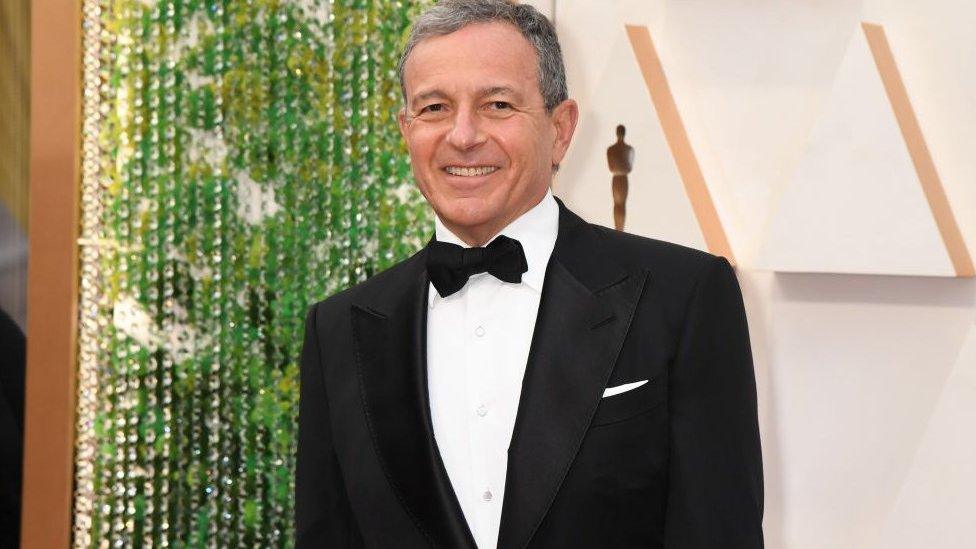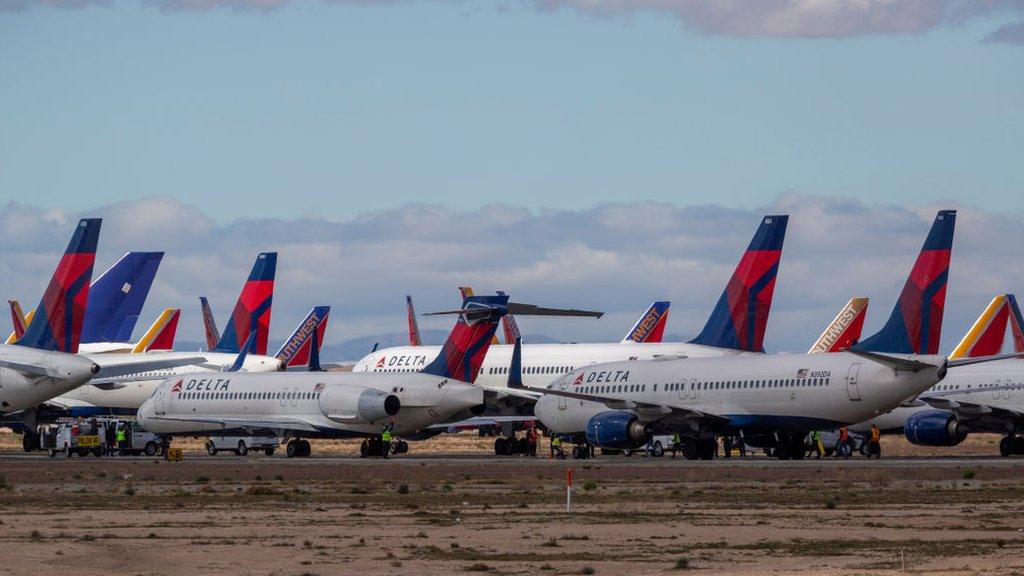CEOs cutting salaries is mostly a 'publicity stunt'
- Published

Bob Iger earned $3m in basic salary last year
Many high-profile chief executives who have announced salary cuts during the coronavirus downturn may not lose out.
Salaries are typically only a fraction of an executive's overall pay package, with bonuses and shares making up the bulk.
Critics say such announcements are often publicity stunts to earn goodwill among the public.
They also argue chief executives benefit directly if the share price rises as a result of the gesture.
Among the most high-profile to announce a cutback is Disney chairman Bob Iger who earned $3m (£2.4m) in basic salary last year.
However, this base salary was only a fraction of his $47.5m total package. The remainder was made up of a $21.8m bonus, stocks and other benefits.
Mr Iger, who is worth more than $690m according to Forbes, said he will give up all his salary while the crisis lasts.
"When wealthy CEOs take cuts to their salaries, I want to believe that they're sincere about doing their part. Unfortunately, the more I look into these matters, it's merely a public relations show," said Jack Kelly, founder and chief executive of a New York-based recruitment firm.
Others who have said they will take salary cuts include Arne Sorenson, chief executive of the world's biggest hotel chain, Marriott. Mr Sorenson's basic salary was $1.3m last year, but his overall compensation was $13.4m.
United Airlines' chief executive Oscar Munoz announced he will waive 100% of his base salary until at least the end of June. For 2019, his wages were $1.25m, but this was only 10% of his total remuneration package.
Both airlines and hotels have been hit hard by the coronavirus downturn and hundreds of thousands of jobs are at risk.
Goodwill benefit
Chief executives are typically given free shares in the company as part of their remuneration package. When the company's share price goes up, their personal wealth also goes up.
"Announcing you will take a salary cut will buy you a lot of goodwill and hopefully raise the company's stock price. Because the CEO's bonus is often linked to the share price as well, they will not lose money by giving up some of their salary." said Sumit Agarwal, an economics professor at the National University of Singapore (NUS).
This goodwill boost can also extend to employees when it comes to layoffs. "When they cutback staff they can say they are making sacrifices personally too," added Mr Argawal. "It's all a bit of a publicity stunt."
Other business experts look more favourably on the salary sacrifices. "Sacrificing cash salary can reduce the number of workers that needs to be furloughed," said Alex Edmans at the London Business School.
Xavier Baeten, Professor in Reward and Sustainability at the Vlerick Business School in Belgium, said such gestures "also shows solidarity with the employees, who also suffer from pay cuts" but added that "it should be a genuine expression of the company's social responsiveness."
HR consultant Emily Draycott-Jones advised: "There's a lot of respect for leaders doing this quietly and discretely and an awful lot of frustration when it's a publicity stunt."
- Published3 May 2020
